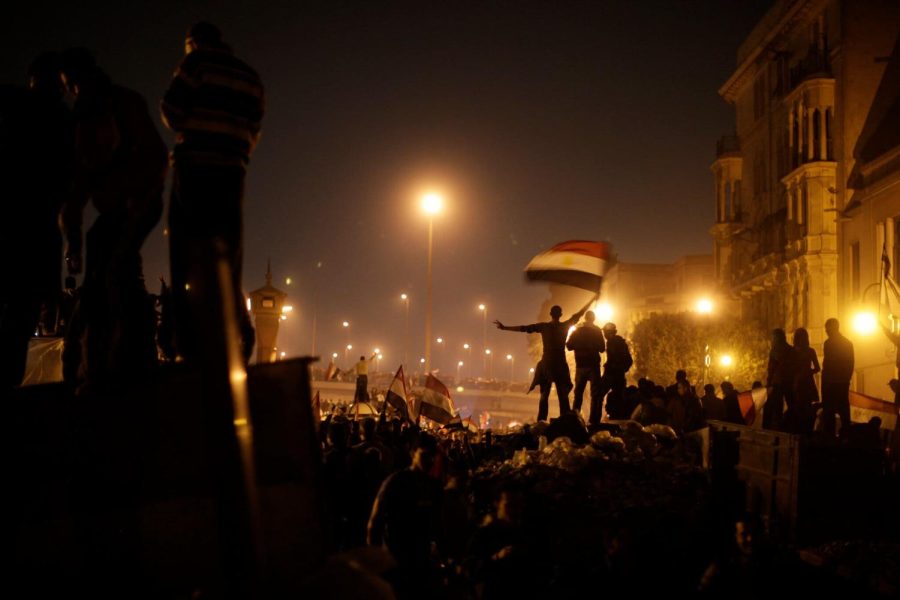2021 marks 10th anniversary of Arab Spring movements
Photo courtesy of Ed Ou for The New York Times
A celebration took place in Cairo, Egypt in 2011 after the president had been toppled following 18 days of protest. The demonstrations were a part of Arab Spring, a time of much political upheaval.
The Arab Spring occurred from 2010-2012, with much of the political upheaval — centered on mass protests and riots — taking place in 2011. This movement’s origin is in a small central Tunisian town, where merchant Mohamed Bouazizi engaged in an ultimately fatal act of self immolation in 2010.
Bouazizi’s act of protest was perceived by many as an act of defiance against an increasingly corrupt Tunisian government. In this specific instance, local Tunisian government officials had publicly humiliated Bouazizi and increasingly demanded bribes from his business on threat of a government shutdown should he not comply.
“The Arab Spring was a series of popular uprisings against oppressive and corrupt rule in numerous countries,” said Paul Kubicek, Ph.D., professor of political science at Oakland University. “It offered a chance for democracy and improvements in human rights in a region where respect for both was often weak.”
With protest movements — and in rare cases instances of violent overthrow of sitting governments — enveloping Northern Africa and significant portions of the Middle East, political change looked to be a reasonable outcome of the Arab Spring.
“The Arab Spring generated great hope, but I think it is fair to say it failed,” Dr. Kubicek said. “Egypt had a coup in 2013, the military returned to power and it is more repressive than ever before. Protests in Syria were met with force, and this triggered the civil war there. Protests in other countries also led to only modest reforms or were repressed. Tunisia was the one bright spot for many years — it held a series of free and competitive elections — but recently its leader has made a bid to centralize power, which throws into question whether democracy can survive there.”
This brief spark of hope is all that many people throughout the Middle East and Northern Africa experienced. Although this is not surprising, given how non-democratic government structures have and continue to be how most humans are governed.
“There is an almost perfect relationship between these country’s natural resource endowments and the extent to which the Arab Spring protests movements were successful,” said Matthew Fails, Ph.D., associate professor of political science at OU. “Those countries which could use their enormous resource wealth (mostly from oil and natural gas) to co-opt protesters — by expanding social welfare programs and in some instances, direct cash payments to encourage people to stay home — survived virtually unscathed. Those that lacked these kinds of resources faced more sustained protests. It is no surprise that Tunisia and Egypt, two cases where the Arab Spring protests led to the most visible political changes, are some of the most resource-poor countries in the region.”
Governments that were challenged by calls for concessions learned from the mistakes that allowed grievances to be aired — a lack of authoritarian regulation of social media and the abilities to gather and protest — and have resorted to outright bribery of their citizenry when violent suppression of their populaces proved ineffective.
“The underlying problems that led to the Arab Spring — corruption, repression, lack of economic opportunity — have not gone away,” Dr. Fails said. “There is still a demand for change in most countries. Leaders are aware of this and have used various policies, including clampdowns on traditional and social media as well as arrest and surveillance of opposition leaders and activists, to make their rule more secure. And some people, given the instability generated by the Arab spring, might be less supportive of an uprising in the future. It is always hard to predict events, but prospects for a similar event seem rather limited.”








